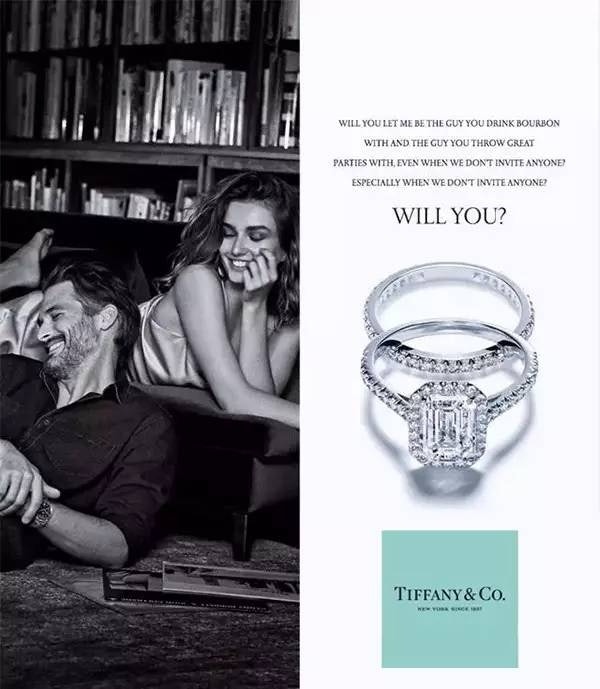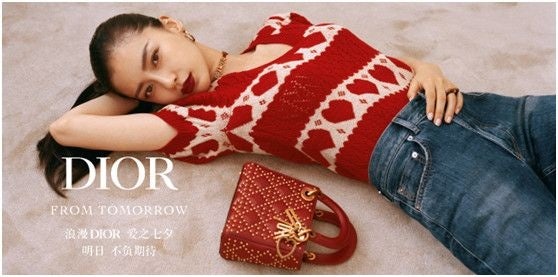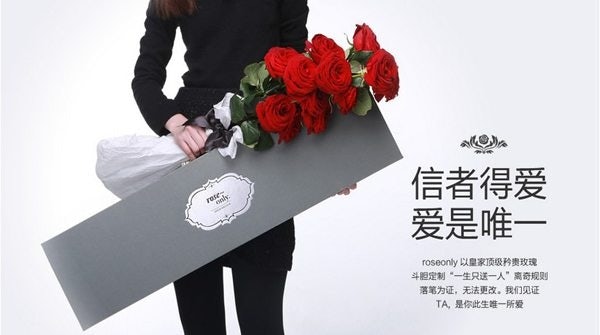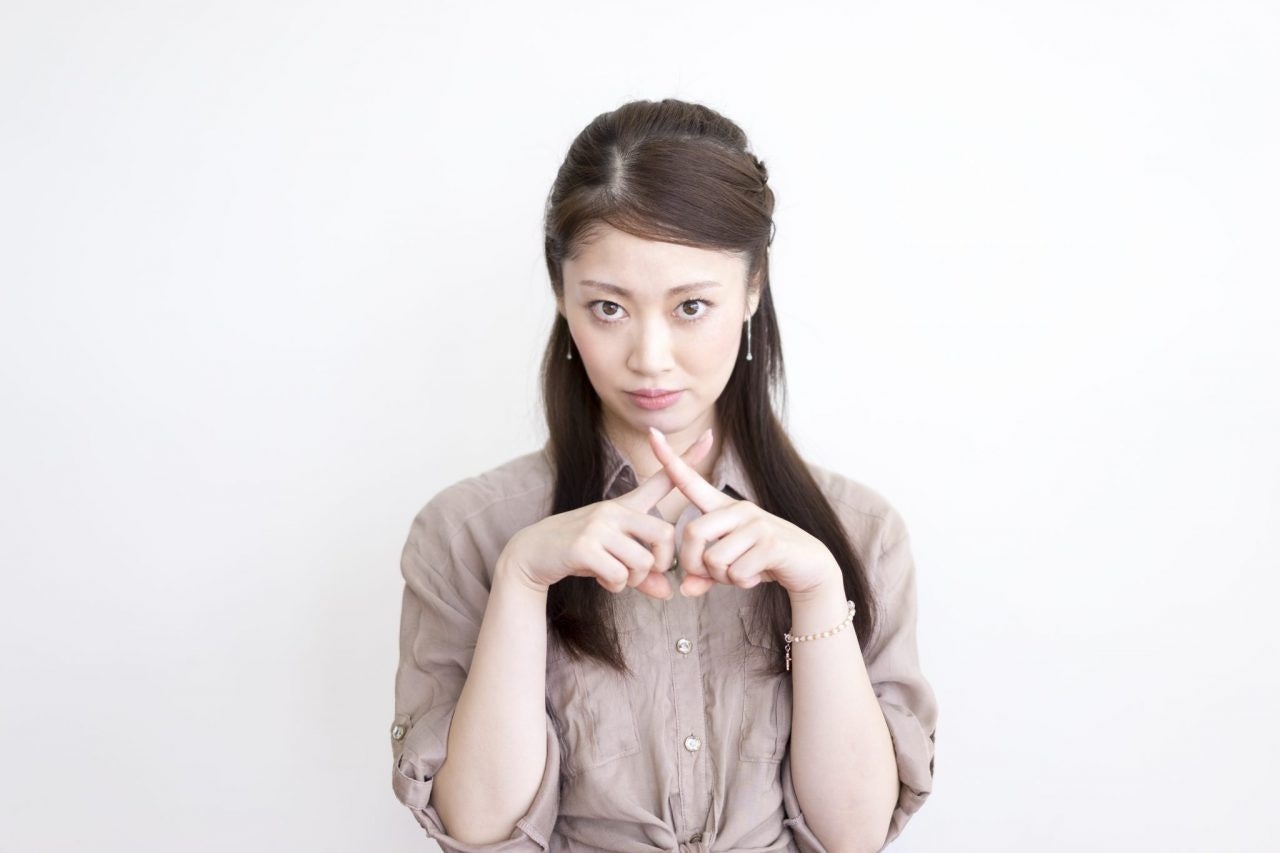Romance sells. Commercials have long used it to draw in consumers, whether they're in a relationship or want to be in one. But romance is understood very differently in different cultures, something brands sometimes forget with regards to China. While millennials in Western cultures want romance to be passionate, their Chinese peers look for a more tranquil, reassuring kind of love.
Compared to previous generations, post-80s and post-90s Chinese do enjoy more autonomy in choosing their partners, but the predominant relationship model is still traditional. Most Chinese millennials grew up hearing Chairman Mao’s mantra, “不以结婚为目的的恋爱就是耍流氓”, which means “you are sexually harassing someone if you don't date them for marriage.”
(Less well known is that Mao married four times, and had scores of lovers.)
Typical relationships in China become official right from the moment that love is confessed. Serious commitment is expected, and try-before-you-buy dating culture is not common.
This more old-fashioned, pragmatic approach to love gives successful luxury brand commercials a different look in China. Let's look at some examples.
1. Tiffany's “Will you?”#

An excerpt from Tiffany's China ad, featuring Hong Kong film director Peter Chan and his actress wife Sandra Ng, reads, “I think a relationship just boils down to habit and daily life in the end. It’s just about having family-style meals and chatting.”

Text from Tiffany & Co.'s international ad reads, “Will you let me be the guy you throw great parties with even when we don't invite anyone? Especially when we don’t invite anyone?”
The Chinese couple embraces an increasingly tame relationship, while the Western couple emphasizes the importance of having fun. The images also illustrate the fundamental differences. While the Chinese couple chats over a family dinner, the Western couple savors romantic moments alone. The former commercial speaks to companionship, and the latter speaks to eroticism.
In mainstream Chinese culture, the goal of a romantic relationship inevitably leads to marriage and family. Chinese couples don't see a family life of prepping meals, mopping the floors, and finishing laundry as scary. Different from their Western peers, they see this domesticity as appealing.
Dior#

In Dior’s China 2017 Valentine special video, Angelababy, known as China’s Kim Kardashian, says, “Love is beautiful because it cheers me up. Whether I am happy or unhappy, I smile when I think of love.” Her marriage to the famous actor Huang Xiaoming is well publicized, including an incredibly lavish wedding ceremony.

Released the same year, a Dior commercial featuring Natalie Portman is more overtly passionate. Portman’s tone is defiant, confident, and ultimately romantic. It's in alignment with the way romance is conceived in the West: passion, challenge, seduction, conquest, and surrender.
In China, by contrast, passion, seduction, and eroticism are considered risks. Chinese women often joke about the sense of security they feel having fat or ugly husbands with fewer opportunities to cheat.
The Chinese-style relationship is deeply rooted in companionship, intimacy, and security. Young Chinese want to feel a sense of mutual responsibility for their partners.
Roseonly#

Roseonly is a Chinese flower delivery company that launched three years ago. Its commercial reads, “Love belongs to believers. Love is only.”
Roseonly has emerged as a new kind of proof of love, with some people in China calling it the new Tiffany's. It acquired this unique status with a policy that asks customers to purchase bouquets for a single person, just once in a lifetime. It requires customers to specify the name of the recipient for their purchased bouquet, which can’t be changed after the name is set. Inside the bouquet, the recipient also finds a “Roseonly True Love Certificate” that verifies the “once-in-a-lifetime” gift value. The costumer cannot make future purchases with a different recipient name.
With this “one person in a lifetime” policy, the brand has successfully made itself synonymous with romantic commitment. Despite the brand’s strict policy and premium price tags, it has done so well among Chinese millennials that Roseonly has now become a US 100 million business.
To Western millennials, Roseonly might seem bizarre. Shouldn't love be expressed so passionately that it doesn't need to be verified in an exclusive contract with a florist? Is monogamy even desirable? The two cultures of romance are very different indeed.
Simply knowing these differences can help brands be more relevant when they plan their communications strategies in China. In order to get it right for the Chinese millennial market, brands should understand these four principles.
1. Chinese Millennials Want a Different Kind of Love#
While Western culture values passion and have a sense of erotic entitlement, Chinese culture values commitment and reassurance.
2. Emphasize Commitment#
Making commitments and promises is essential for most Chinese couples, but it can be awkward to say it out loud. Numbers that are near homonyms of romantic phrases are used instead. The most common 'romantic' numbers are 1314 (“一生一世”,meaning “forever”) and 520 (“我爱你”, meaning “I love you”). Price tags that contain these numbers are seen as perfect for romantic gifting.
3. Soften Eroticism and Passion#
Erotic, seductive images do not appeal to Chinese millennials in a romantic context, since Chinese traditional culture prioritizes responsibility over these values.
4. Real Feelings Engender Expensive Gifts#
In the West, personal sacrifices, such as spending a huge amount of time or energy to do something for a loved one, can be incredibly romantic. In China, it's financial sacrifices that matter. Chinese consumers attach strong emotions to luxury brand names, in part because when they receive them as gifts, the price tags are often understood to directly reflect the importance of the relationship. Buying someone something expensive means you feel strongly about them.
Learning to say “I love you”in different languages is not enough anymore. Knowing what “I love you” means, and when not to say it, will help brands better reach young Chinese consumers.
Jiaqi Luo is a marketing strategist at East Media, an essayist, and a member of China's post-95 generation.

